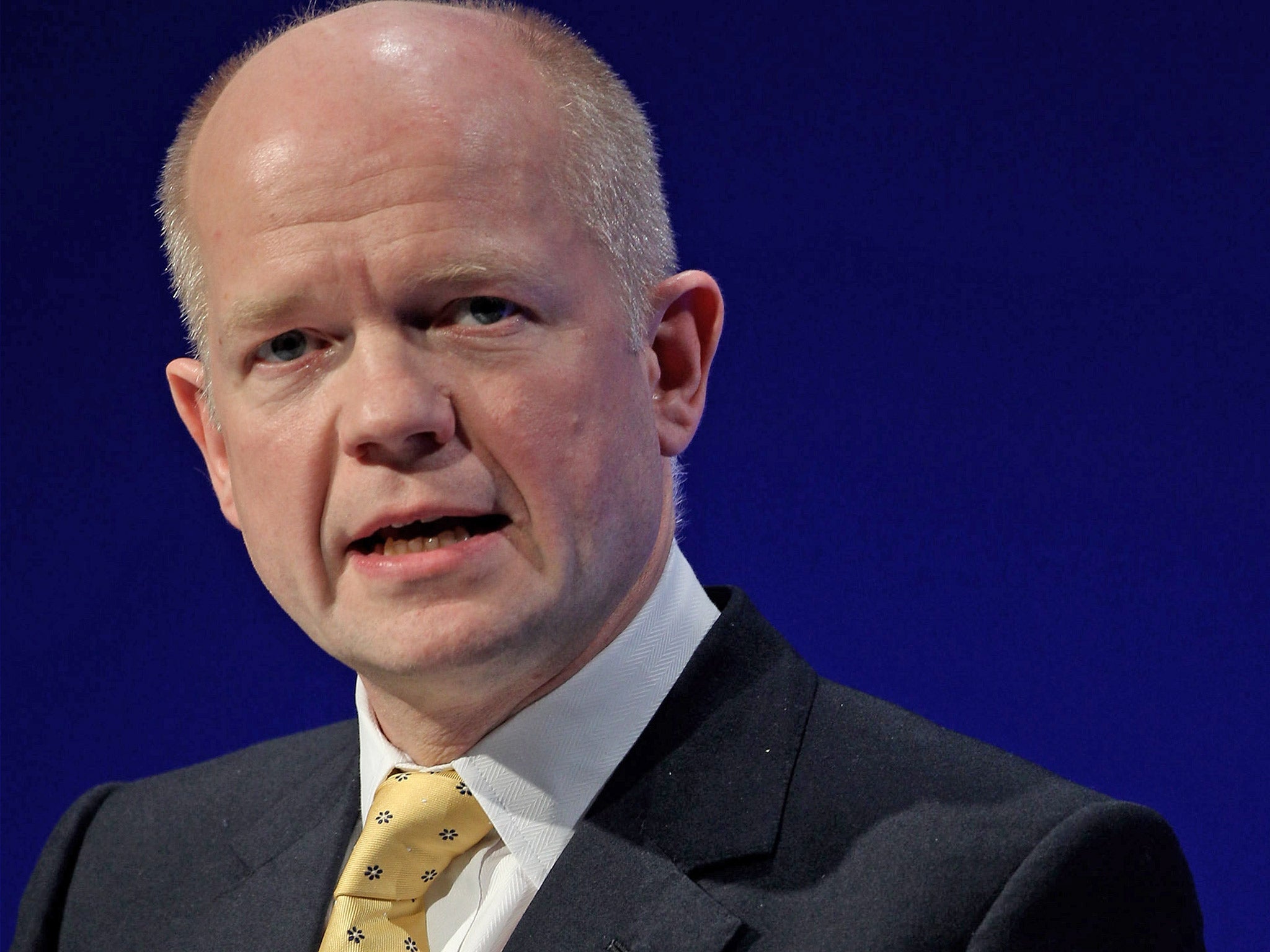Britain must work with regimes that have abused human rights, says William Hague

Britain must be prepared to share intelligence with foreign governments that could prevent a terrorist attack in this country or abroad even if those countries have questionable human rights records, the Foreign Secretary, William Hague, said today.
Speaking in the wake of last month’s terrorist attacks at a gas instillation in Algeria, Mr Hague said the Government will step up efforts to support the legal, criminal and human rights systems across North Africa.
Speaking at the Royal United Services Institute, he warned at the same that Britain faces a “stark choice” over whether to share intelligence with countries that could prevent a terrorist attack even if we do not have full confidence that the investigation and prosecution of the individuals involved would be in accordance with Western human rights law.“In many cases, we are able to obtain credible assurances from our foreign partners that give us the safeguards we need and the confidence that we can share information,” Mr Hague said.
“Where this is not the case, we face a stark choice. We could disengage, but this would place our citizens at greater risk of terrorist attack, in the UK or overseas. Or we can choose to share our intelligence in a carefully controlled way while developing a more comprehensive approach to human rights adherence. This approach brings risk, but I am clear that the risks of the first option, of stepping back, are greater still.”
Mr Hague’s comments are thought to refer in particular to countries such as Somalia, Algeria and other states in the Sahel region of North Africa which have become a magnet for al-Qa’ida activity.
“The bulk of our effort to counter terrorism is now overseas where terrorists train and plan for attacks in the West. We cannot do it without working with other countries,” he said.
David Cameron announced greater security co-operation with Algeria during his recent visit to the country.
Mr Hague also warned that British jihadists fighting the Assad regime in Syria could return to carry out terrorist attacks in the UK.
Mr Hague said Syria had now become the "number one destination" for Islamist extremists seeking to hijack the popular uprisings across the Arab world.
He said the longer the conflict went on, the greater the danger was that battle-hardened militants would return to pose a threat in the West.
"This includes a number of individuals connected with the United Kingdom and other European countries," he said.
"They may not pose a threat to us when they first go to Syria, but if they survive some may return ideologically hardened and with experience of weapons and explosives."
A prolonged struggle also increased the risk that the regime could resort to chemical or biological weapons, he said, and he urged Russia and China to drop their opposition to moves in the United Nations to achieve a negotiated transition to a new government.
Cori Crider, the legal director of Reprieve, said: "We've been here before - from Afghanistan to Libya, the UK has handed over detainees or colluded in renditions, knowing that the result will be that people face torture.
"The Government has sought to spare its blushes by obtaining 'assurances', but these have not been worth the paper they were printed on.
"William Hague is trying to find a way to join hands with the torturer while keeping his own hands clean - it just won't work."
The Government has previously had to pay out millions of pounds in compensation to suspects such as Binyam Mohamed over claims that the British intelligence and security services colluded in their torture while they were detained in countries like Pakistan and Morocco.
Ministers have also so far failed in their long-running battle to deport the radical cleric Abu Qatada to stand trial in Jordan on terrorist charges, despite assurances from the Jordanian authorities that they would not use evidence obtained by torture.
Mr Hague stressed that every aspect of the work would require ministerial approval, and would be halted immediately if there was "any credible evidence" that UK support was being misused.
"This is a framework of accountability and human rights to ensure that our counter-terrorism work supports justice and the rule of law as well as our security, with the goal of creating the long-term conditions for better observance of human rights in countries that have a poor record and where the threat from terrorism is strong." he said.
Join our commenting forum
Join thought-provoking conversations, follow other Independent readers and see their replies
Comments
Bookmark popover
Removed from bookmarks